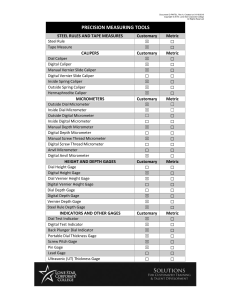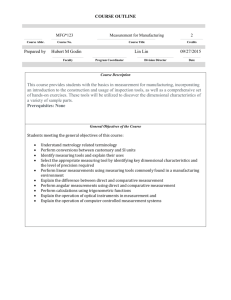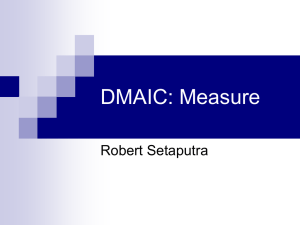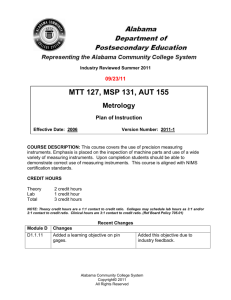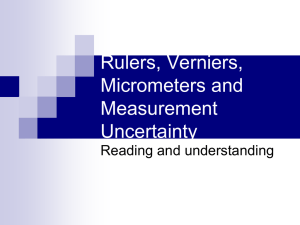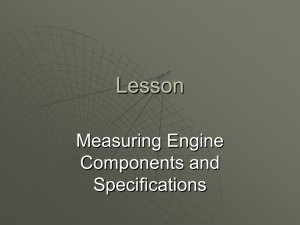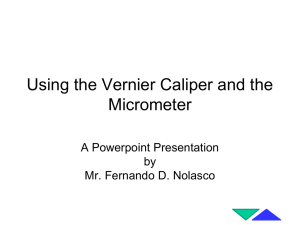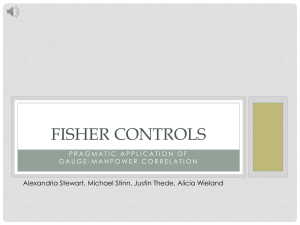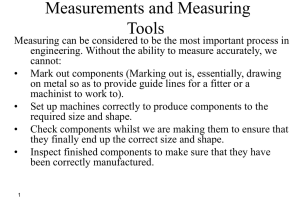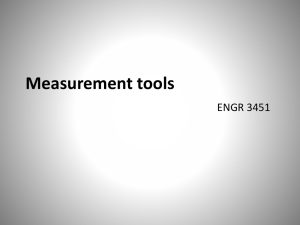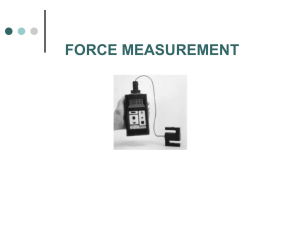Precision Measuring Tools
advertisement
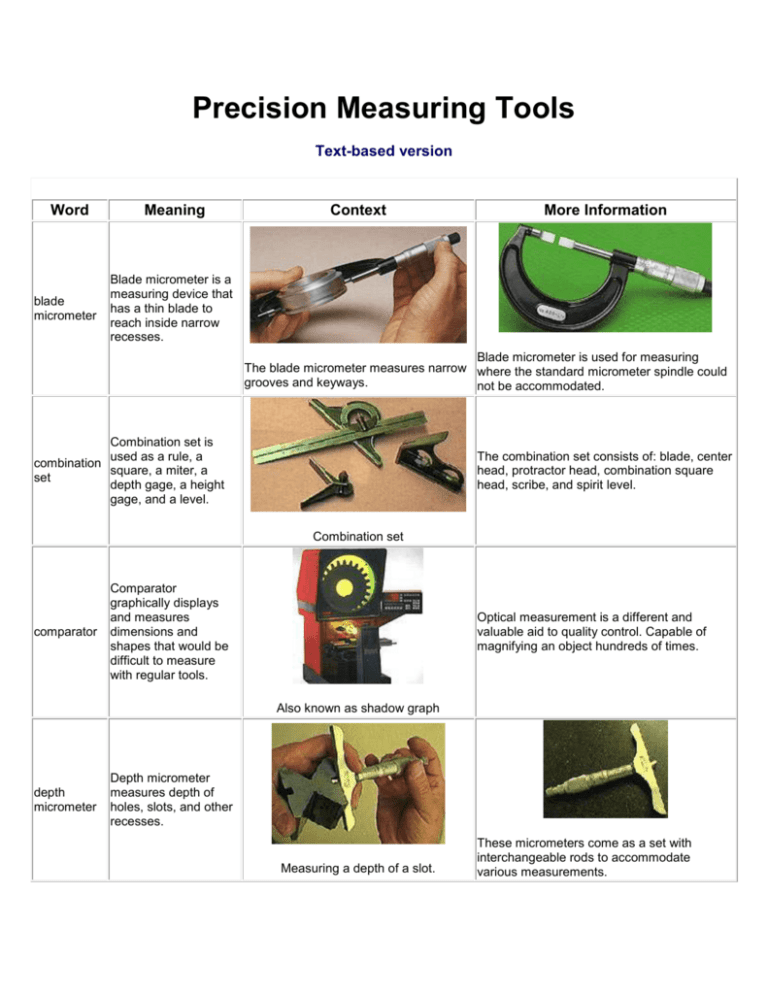
Precision Measuring Tools Text-based version Word blade micrometer Meaning Precision Measuring Tools Context More Information Blade micrometer is a measuring device that has a thin blade to reach inside narrow recesses. Blade micrometer is used for measuring The blade micrometer measures narrow where the standard micrometer spindle could grooves and keyways. not be accommodated. Combination set is used as a rule, a combination square, a miter, a set depth gage, a height gage, and a level. The combination set consists of: blade, center head, protractor head, combination square head, scribe, and spirit level. Combination set comparator Comparator graphically displays and measures dimensions and shapes that would be difficult to measure with regular tools. Optical measurement is a different and valuable aid to quality control. Capable of magnifying an object hundreds of times. Also known as shadow graph depth micrometer Depth micrometer measures depth of holes, slots, and other recesses. Measuring a depth of a slot. These micrometers come as a set with interchangeable rods to accommodate various measurements. Dial indicators check alignment of machine components; show the variation of the object being measured. There are 2 types of dial indicators: dial indicators a. Balanced reading (has figures in both directions from the zero) b. Continuous reading (numbered continuously) disc micrometer Dial indicators can be used to make linear measurements. Continuous reading dial indicator Disc micrometer measures forming tools, cutting edges, narrow slots. The disc micrometer is also called a flange micrometer. gage block set Gage block set is also known as "Jo Blocks". Precision-round square or rectangular blocks are made of steel, chrome, or tungsten carbide. micrometer Micrometer is used to measure materials. It is available in metric and inch systems. The most common are the outside and inside micrometers. This micrometer finds its application in measuring flanges and hard to reach areas. Gage blocks are used for: - calibration and inspection of precision instruments - to set comparators/indicators - setting of sine bars - precision layout The measuring surfaces are lapped and - machine setups polished to 200 milionths of an inch. The most commonly used precision instrument. Available in different shapes and sizes outside caliper Rules are also used for transfer measurements with calipers. It is used for semi-precision and comparison measurement. They depend on "feel" to measure a part. Outside caliper measures an outside surface. The outside caliper is used to measure outside diameter. plug gage A type of "Go" or "NoGo" gage used to admit or refuse the inside dimension of an object. There are three types: - plain cylindrical - cylindrical taper - thread plug gage ring gage They are mounted at the ends of an aluminum handle. "Go" in one end and "No-Go" on the opposite end. Available in different sizes There are three types: A type of "Go" or "NoGo" gage used to admit or refuse the outside dimension being checked. - plain ring gages - taper ring gages - thread ring gages Ring gages are used as sets. screw thread micrometer sine bar The 60 degree comparator micrometer is usually called a screw thread comparator micrometer or pitch micrometer. The pitch diameter, the most important Measuring the pitch diameter of a screw measurement of a screw thread. thread. Sine bar is used for checking angles, typically used with gage blocks. The sine bar is a precision bar that has been hardened and then ground and lapped to very precise dimensions. It is also used for machine setups. Precise angles are measured using the sine bar. Various types of snap gages: snap gage Snap gage gages diameters, lengths,and thickness. - adjustable snap gage - adjustable roll snap gage - dial indicator snap gage The adjustable limit snap gage is used to check outside diameter. square A square has two straight edges that form a right angle. A machinist uses several types of squares for a variety of jobs. A square is used for inspecting squarness and laying out work. A master precision square surface gage Surface gage is a scribing tool that draws lines parallel to a surface. When combined with test indicator, flatness, parallelism and heights may be inspected. Surface gages are designed for a variety of uses. The main uses are for scribing lines, transferring measurements and for probing surfaces in inspection work. The surface gage universal bevel protractor Universal bevel protractor is used to lay out, measure, or check angles. The bevel protractor can measure angles to five minutes of a degree. Vernier caliper Vernier caliper is a precision measuring tool capable to read within .001 inch. Used for inside, outside and depth measurements. A Vernier caliper consists of a beam with a fixed measuring jaw, a sliding jaw witht he Vernier scale, and a mechanism for making fine adjustments. The Vernier caliper Vernier gear-tooth caliper Vernier gear-tooth caliper measures gear teeth using two Vernier scales. Designed to measure the thickness of gear teeth. It is rugged and reliable tool that gives precise and Vernier dependable height gage measurements over long vertical ranges. It is also used for precision layout. The Vernier height gage
